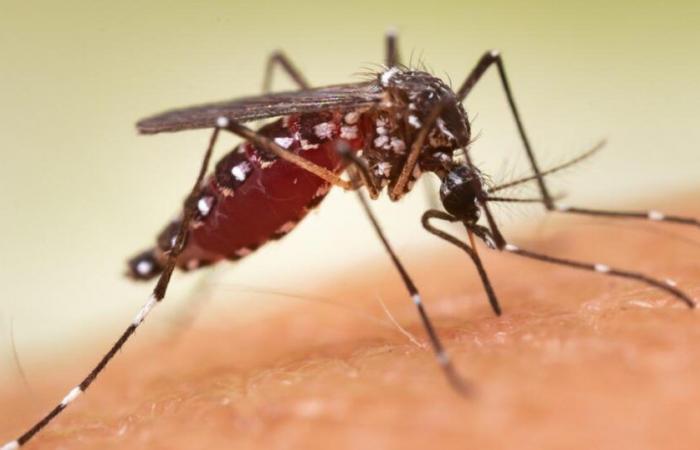This method, according to Australian researchers, « could work as quickly as pesticides, without harming beneficial species ».
“Toxic” sperm from genetically modified mosquitoes could help fight the transmission of tropical diseases, Australian scientists explain in a study published Tuesday.
Their technique, known as the “toxic male”, consists of breeding mosquitoes whose sperm contains venomous proteins, fatal for females after mating. The objective is thus to kill populations of female insects, which are the only ones to bite and suck blood with the risk of inoculating their victims with potentially lethal infectious diseases such as malaria or dengue fever.
According to scientist Sam Beach of Australia's Macquarie University, this method « could work as quickly as pesticides, without harming beneficial species ». « This innovative solution could transform the way we manage pests, offering hope for healthier communities and a more sustainable future », adds the expert, participating in this study published in the journal Nature Communications on January 7.
The first tests, which aimed to prove the concept, focused on vinegar flies, a species commonly used in the laboratory due to its short lifespan. Female subjects who mated with “toxic” males saw their life expectancy significantly reduced, scientists report. Maciej Maselko, another researcher at Macquarie University, said the next step was to test on mosquitoes, « to be sure that there is no risk to humans or other non-target species ».
The more effective “toxic male” method
Genetic engineering, which consists of manipulating the DNA of organisms, is a technique used for a long time to control the populations of mosquitoes responsible for the transmission of diseases, in particular by rendering cohorts of males sterile, or by the release of insects carrying deadly genes. The latter method involves releasing masses of sterilized or genetically modified males to mate with wild females. Via this technique, females do not produce offspring, or only male offspring, but they continue to feed on blood and therefore spread diseases until their natural death. Thus, populations of biting females only decrease over generations.
-Computer simulations show that the “toxic male” method would be more effective, according to the researchers. This technique involves genetically modifying male insects so that they produce specific venom proteins in their sperm. When these males mate with females, proteins are transferred, significantly reducing the females' lifespan and ability to spread disease. Researchers estimate that mating females with genetically modified males reduced their lifespan by 60%.
Effective against agricultural pests
Still according to the authors, this technique would also be cheaper because few males are needed to obtain a much faster reduction in the insect population. The technology could further work to quickly respond to outbreaks of other agricultural pests.
As for the production of genetically modified mosquitoes, it could be carried out by playing on the modalities of “gene expression”, so that in the laboratory the females can be fertilized without succumbing themselves.
Other mosquito control techniques, developed by start-ups in France, consist of dispersing carbon dioxide to imitate human breathing, in order to attract these insects and trap them, via automatic terminals. An olfactory lure also simulates body odor.






